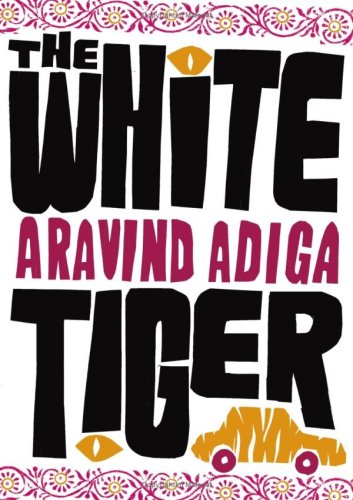'The White Tiger' by Aravind Adiga
 As a reader of fiction I am immediately suspicious of clever narrative devices. When it became obvious that Aravind Adiga’s Booker Prize winning novel, ‘The White Tiger’, comprised correspondence between a Bangalore businessman and the Chinese premier, my cynicism immediately heightened. It is testimony to Adiga’s deft touch that Balram Halwai, his narrator, unfolds a tale of ambition and murder which dispelled all doubt and held me enthralled to its conclusion.
As a reader of fiction I am immediately suspicious of clever narrative devices. When it became obvious that Aravind Adiga’s Booker Prize winning novel, ‘The White Tiger’, comprised correspondence between a Bangalore businessman and the Chinese premier, my cynicism immediately heightened. It is testimony to Adiga’s deft touch that Balram Halwai, his narrator, unfolds a tale of ambition and murder which dispelled all doubt and held me enthralled to its conclusion. Halwai is an ambitious, able village boy who manages to bridge the gap between two symbiotic but diametrically different Indias. One is an emerging economic powerhouse, fuelled by American outsourcing and represented by gleaming cinemas and shopping malls. Its counterpoint is the rural ’darkness’, squalid, impoverished, filthy; teeming with the homeless and sick. In the gridlocked streets of Delhi these two countries merge and it is the cleavage between them that provides the motor for Adiga’s novel.
The narrator escapes his village and becomes driver to Mr Ashok, son of a wealthy Indian, despatched to Delhi in order to oil the wheels of government. The story is politically charged. Indeed whilst Balram looks to the Chinese prime minister as guarantor of a fairer, more egalitarian regime than the western model, his master also decries the workings of parliamentary democracy as an impediment to India’s ascent. For much of the novel an election campaign is taking place with the ’Great Socialist’ styling himself the candidate of ’the darkness’. The ruling Congress Party is portrayed as incorrigibly corrupt.
Balram has a compellingly conversational voice, equipped with a keen eye and a startling turn of phrase. Although much of the subject manner of Adiga’s novel could be oppressively gloomy, he fashions an exciting ride through the underbelly of India’s new found wealth. It is twin impediments of corruption and economic immobility which entrench the grinding poverty the author depicts. The economy is growing exponentially, but a social ‘turkey coop’ is in place, exacerbated by the traditions of the caste system, which helps constrict the benefits to a small minority.
This is an admirably unsentimental book bereft of the clichés which blight fiction about India. I would rather read Adiga’s unfussy, penetrating prose than Rushdie’s mealy mouthed, pseudo poetic, mangled English, any day of the week. Sebastian Barry’s ’The Secret Scripture’ remains unread on the bookshelf, and I understand it has its vociferous supporters, but ’The White Tiger’ seems to me a worthy prize winner, the competition not withstanding.
Comments